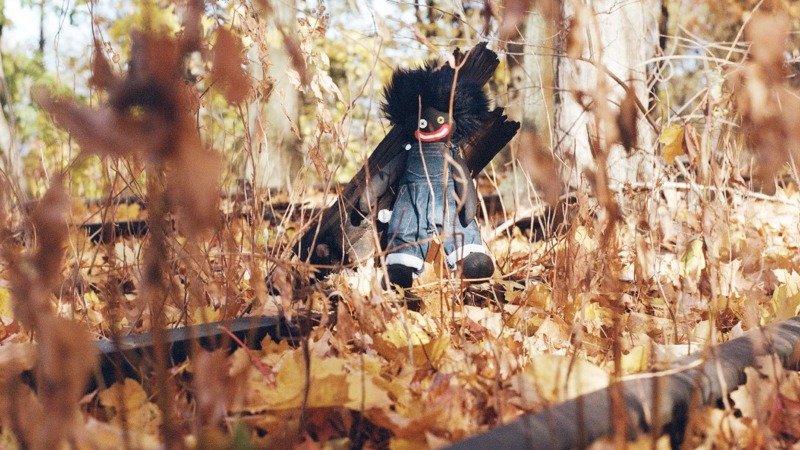billy woods Finds a Hunger in the Psychodrama of GOLLIWOG
Irreversible, unavoidable self-destruction at the foot of power is a tale as old as humankind, but rarely is it captured so poignantly, or as comprehensively, as on the Brooklyn MC's latest.

At the center of billy woods’ flickering, phantasmagoric GOLLIWOG is a pair of eyes. It belongs to the titular doll, a 19th-century caricature of pitchy tufts, red lips, shiv-sharp teeth, and casual cruelty borne of (allegedly unwitting) minstrel origin and commodified by enterprising English toy makers to line the shelves and arms of young white Western tabula rasas. It was typically constructed with the glazed gaze of a hapless animal. On the cover of woods’ new LP, even from feet away that gaze penetrates and stays fixed on your own, a portable abyss whose pupils ravenously follow the ancient sins it spies through your windows.
woods, who by now has achieved enough visibility to be a serious contender for the greatest hip-hop artist alive, turns his golliwog into an albatross whose shapeshifting depends on whichever beast is feasting on his residual scraps of soul. (“Ragdoll playing dead,” he utters right at the outset, a bar of extraordinary density in an album crammed with them.) It is himself; it is whatever lays rotten inside him; it is the scars of his past, the lacerator and the hand commanding the knife; it is friends and family, lovers, all their doppelgängers, everyone and everywhere and it never, ever breaks its gaze, not one time.
Such psychodrama is nothing new to a Brooklynite whose decades-long career is defined by records steeped in anxious atmospherics, but rarely has that dread sounded so acute. GOLLIWOG’s myriad producers, many of whom are previous contributors to woods’ catalogue, color-grade the MC’s murky tableaus. Sometimes, they fabricate the entire set. On “STAR87,” Conductor Williams pairs tinny boom-bap with quivering violins, errant bass, and the unceasing ring of landlines. (“They wanna know where the bodies is hid,” woods’ narrator reveals eventually, as if it would ever help.) woods opens “Waterproof Mascara” with a portrait of a weeping mother before shifting subject but Preservation keeps that weeping in the foreground, looping incessantly like a dark splinter lodged in the heart. The crackle of a palpitating digital heartbeat thrums underneath al.divino’s introductory verse on “Maquiladoras” until the first gunshot is fired, after which a heartbreaking piano chord punctuates the demarcated timeline.
-

-

-

-

-

-

-

-

-

-

-

-

-

-

-

-

-

-

-

-

-

-

-

-

-

-

-

-

-

-

-

-

-

-

-

-

-

-

-

-








































